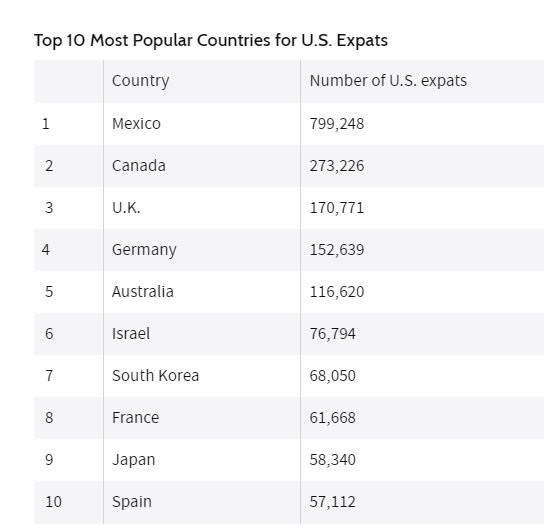This is the 8th country that most US expats prefer to move to – with more than 61,000 American citizens living there, in the list of preferences, this nation is well above heavyweights like Spain or Italy!

I am talking about France!
But…
if you’re not careful, French idiosyncrasies can turn your dream life into an unexpected social and culture shock!
It is a beautiful, sunny place – some of the people we talked with describe it as the best in the world – as long as you can handle certain things
Today you will discover 4 of them, and also, I will tell you about a little mistake that many Americans do – and they don’t even realize, and if you keep making this mistake, French people might not just dislike you… they might avoid you altogether.
Ready?
The 1st thing to handle if you plan to retire in France is the French language.
If you’re coming to France for a short time, and to a large city, it is understandable if you don’t speak French.
But if you’re planning to stay longer, learning the local language is really important.

One man, married to a French woman, shared his experience with us:
“Lived in France with a French wife, from East Asia myself. Not having C1 level French is a huge disadvantage.”
In Paris, you can get by without speaking French, but it limits how much you can connect with locals. In France, just 39% of the population speak English, and most of them are concentrated in big cities – so if you are planning to move to a small village and you think you can get by just with English, THINK AGAIN.
Not knowing French also makes it harder to make friends or socialize. A French professional who worked with many American expats told us:
“I am French and I used to work with thousands of US expats for years moving to Paris. All I can say is learning French should be your top priority. Over the years, the ones who learned the language are the ones who integrated without problems. Especially if you are not in Paris.”

But don’t let that frighten you – there is a funnier and nicer way to learn a new language. The method I use to learn new languages is this one (by using this link you get a 40% discount after trying for free, and if you subscribe, you’ll get a 40% discount!)

Now, the next thing that you must know how to handle if you live in France will create some polemics in the comment section
Because for some, they are abusive, but for others, they are justified.
I am talking about the numerous strikes and protests in France
And no, the idea that there are a lot of strikes and protests in France is not just a stereotype.
It is a fact!

According to research conducted by the Hans Böckler Foundation, Belgium and France have the highest strike rates in the world.
During an entire decade, Belgium had an average of 97 days lost per 1,000 employees due to strikes, and France came very close in second, with 93 days lost.
To put it into perspective, Spain had 48 days lost, and Germany had only 18 days lost per 1,000 employees due to strikes. So the chances of a worker’s strike starting on any day in France are over five times higher than in Germany.
The scariest thing is that the sector most affected by strikes is often the most needed, and the absolute champion of strikes is the health and social sector. In this sector, 42.6% of all companies with more than 200 employees were affected by strikes
In other sectors, like the food industry and the transport industry, 1 in every 5 companies had their activities affected by strikes.
Americans are not used to that. In fact, just a few countries in the world are used to such high numbers of strikes – Belgium, France, and maybe Canada.
A worker’s strike can affect your routine in many ways – in the health sector, they are particularly tricky because it can directly affect your well-being.
Strikes in hospitals, clinics, or social services might mean delays in appointments, postponed surgeries, or understaffed emergency rooms.
But even in other sectors, the consequences can be very unpleasant for you. Imagine you are flying today to attend your son’s wedding, only to find out that your flight is canceled because air traffic controllers or airline staff have gone on strike.
Of course, often these strikes don’t come without warning, so when there is even a possibility of a protest or a general paralyzation happening, it is essential for you to have a plan b or even a plan c.
Need to fly but there is a chance the airline staff will go on strike? Try to book an alternative route with a different company.
The public transport in your city is going on strike tomorrow? Rent a moped today, and so on – but get ready beforehand.
The 3rd thing you need to handle after moving to France is the Healthcare system.
It might look daunting at first, but to know how to navigate it is totally worth it once you get it. France is world-famous for its healthcare system, ranked among the best globally by the World Health Organization, but for non-EU citizens, getting access to this system isn’t automatic—you’ve got to put in the legwork.
First you must secure health coverage before arrival because one of the retirement visa requirements is proof of private health insurance. This isn’t just any travel insurance; it needs to cover you comprehensively for at least your first year in France.
Make sure it’s valid across the European Union, because, hey, spontaneous trips to Italy are a thing.
Once you’ve lived in France for three consecutive months, you can apply for PUMA (Protection Universelle Maladie), France’s universal healthcare system.

This system covers a significant portion of medical costs, usually 70%, and for major procedures, even more.
You’ll need to visit your local CPAM office to start the process, and bring your rental agreement, proof of residency, and a translator if your French isn’t up to par.
After that you need to get a Carte Vitale, which is your golden ticket to reduced medical costs and streamlined reimbursements. You’ll present it at every doctor’s appointment or pharmacy visit.

Remember that while PUMA covers a lot, it doesn’t cover everything. Many French residents, including expats, opt for a supplemental insurance plan called a mutuelle. These plans fill in the gaps, covering co-pays, dental care, and vision.
And here is a tip: Embrace the French Way of Healthcare
Don’t be surprised if your French doctor spends more time talking to you than typing into a computer. It’s all part of the charm. And yes, house calls are still a thing in some areas, especially rural France.
But fair warning: appointments can take longer to schedule than in the U.S., so plan ahead for routine care.
Another tip: Have a Backup Pharmacy
Strikes can disrupt not only hospitals but also pharmacies. Always know the location of a backup pharmacy or a pharmacie de garde (on-duty pharmacy), especially if you’re managing chronic conditions.
Navigating French healthcare may seem like a chore at first, but think of it as learning the ropes for a healthier, happier retirement—because who doesn’t want to enjoy an extra croissant guilt-free?
The fourth thing you must handle if you plan to retire in France is also quite dramatic.

The huge differences between living in large cities or small towns in France
If you’re planning to retire in France, one of the most important decisions you’ll make is whether to settle in a large metropolis or a quiet town.

On the surface, this might seem like a choice between excitement and tranquility, but the reality is more complicated —and not always as glamorous as the brochures suggest.
Large cities like Paris, Marseille, and Lyon are cultural hubs, offering plenty of opportunities for socializing, entertainment, and convenience. You’ll find a wide variety of restaurants, theaters, museums, and events at your fingertips.
But living in these larger cities comes with a price—both literally and figuratively.
Paris is one of the most expensive cities in the world, with the average rent for a one-bedroom apartment in the city center costing in average €1,886 per month. The costs of dining out, drinking at a local pub, or even having a haircut are much higher when compared to smaller cities.
And then there’s safety. Larger cities in France have higher crime rates, particularly for pickpocketing and petty theft.
I made an entire video explaining how dangerous some arrondissements of Paris are nowadays – some of them have Latin American levels of criminality.
With other large cities is not much better – in the ranking of the most dangerous cities in Europe, Marseille is in the top 10. This ranking highlights the ongoing security challenges faced by major metropolitan areas, where socio-economic disparities and organized crime contribute to the statistics. For travelers and residents alike, understanding the issues surrounding the most dangerous cities in Europe 2024 is crucial to fostering awareness and promoting safety. Authorities in these cities continue to work on measures to address crime rates and improve the overall quality of life for their inhabitants.

One could say that one of the greatest advantages of larger cities is the public transport infrastructure, but remember: the entire system is one strike or protest away from complete chaos.
In contrast, small towns like Sarlat-la-Canéda in Dordogne or Uzès in Occitanie offer a slower, quieter pace of life. There, you’ll find charming markets, friendly neighbors, and a strong sense of community. The cost of living is much lower, with housing prices often a fraction of what you’d pay in Paris or Lyon.
For example, a countryside home in Provence can cost you less than €200,000.
But rural living isn’t all lavender fields and serene sunsets.
- Many small towns lack some infrastructure, like hospitals or even large grocery stores.
- Public transportation is sparse or non-existent, so owning a car is a must.
- While locals in smaller towns are generally more welcoming than their urban counterparts, you must speak decent French.
- And even so, you might need to handle the feeling of isolation, at least in the beginning.
The key to choosing between a large city and a smaller town in France is knowing your priorities – if you thrive on constant activity and social interaction, a city like Lyon or Bordeaux might suit you. But if you value peace, nature, and affordability, towns like Annecy or L’Isle-sur-la-Sorgue could be your place.
So now you know the 4 things Americans must know how to handle if they decide to retire in France.
But remember at the beginning, when I said that I would also warn you of a mistake… a mistake that many Americans do, without even realizing, and that might make the French avoid, or even dislike them?
Check this article here with other important insights about retirement in France, and you will discover it.
Levi Borba is the founder of expatriateconsultancy.com, creator of the channel The Expat, and best-selling author. You can find him on X here. Some of the links above might be affiliated links, meaning the author earns a small commission if you make a purchase.




